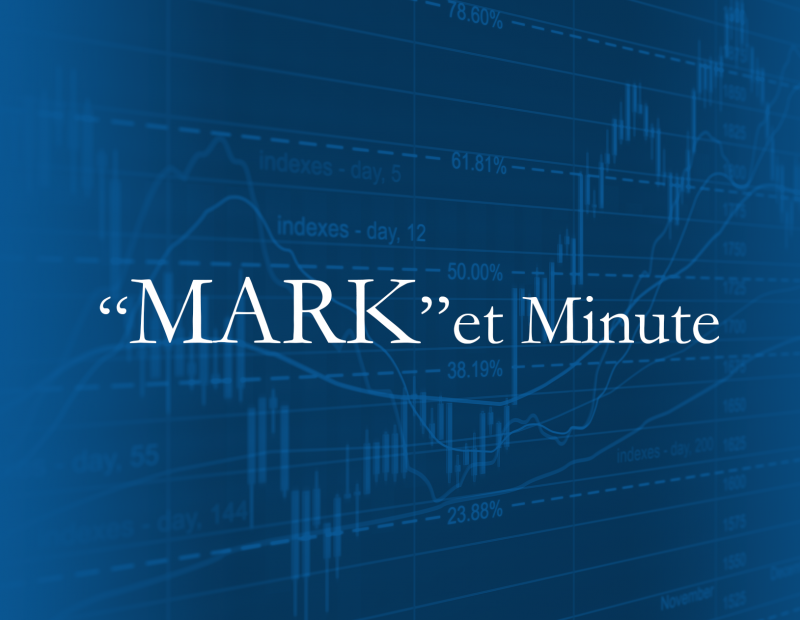Investment Commentary – June 21st, 2016
Market Indices as of Market Close June 21st, 2016
Dow 17,829 (2.32% YTD)
S&P 2,088 (2.20% YTD)
NASDAQ 4,843 (-3.27% YTD)
Global Dow 2,347 (2,033 52 week low /2,606 high)
10-year Treasury 1.71 (1.52 52 week low /2.49 high)
Gold 1,268 ($1,049 52 week low /high $1,319)
Oil $48.95 ($31.61 52 week low /high $63.61)
U.S. stocks gain for second session as Brexit vote looms
U.S. stocks gained for a second session on Tuesday as investors continued to monitor the latest developments out of the U.K. as the country prepared to go to the polls to decide on its membership in the European Union. The latest survey indicated that 45% of voters backed remaining in the EU versus 44% who favored leaving. Stocks had earlier come under pressure after Federal Reserve Chairwoman Janet Yellen testified at the Senate that a victory for the “leave camp” would pose a significant risk to the U.S. economy. The S&P 500 SPX, +0.27% rose 6 points, or 0.3%, to close at 2,088. The Dow Jones Industrial Average DJIA, +0.14% added 23 points, or 0.1%, to finish at 17,827 and the Nasdaq Composite COMP, +0.14% gained 7 points, or 0.1% to close at 4,843.
Fed cautious on rates due to Brexit, U.S. hiring slowdown: Yellen
The Federal Reserve’s ability to raise interest rates this year may hinge on a rebound in hiring that would convince policymakers the U.S. economy isn’t faltering, Fed Chair Janet Yellen told lawmakers on Tuesday.
In testimony before Congress that expressed general optimism about the economy and played down the risk of a recession, Yellen nevertheless said the Fed will be cautious about interest rate increases until it is clear the job market is holding up.
Immediate risks, like the potential fallout from Britain’s June 23 vote on whether to leave the European Union, could darken the U.S. economic outlook, she told the Senate Banking Committee, as could a downturn in productivity growth that may prove a permanent drag on the economy.
“Without a doubt, in the last several months a number of different metrics suggest … a loss of momentum in terms of the pace of improvement,” Yellen said. “We believe that will turn around, we expect it to turn around, but we are taking a cautious approach and watching very carefully to make sure that that expectation is borne out before we proceed to raise interest rates further.”
Brexit 101: Why this week’s vote is important for regular Americans
British citizens will vote on the question, “Should the United Kingdom remain a member of the European Union or leave the European Union?”
Polls will close at 10 p.m. London-time (5 p.m. Eastern), and then the official returns are expected to start coming in around 1 a.m. Friday local time (8 p.m. Eastern). About 50 percent of the returns will be counted within the next three hours, according to most expectations.
In the event that the leave camp wins, the process of a British exit from the EU would begin, but some estimates say the negotiations could take more than two years.
If Brits vote to stay, then markets will breathe a sigh of relief, and the nation will begin the healing process after a tense period.
And why is everyone nervous?
As could be expected, the primary stance of EU politicians is that the U.K. should stay within the bloc, but nations and expert groups across the world have also expressed their preference for a stay victory.
Important British trading partners — including India and China — have indicated they’re worried that an exit would create regulatory and political volatility that could harm the economies of everyone involved.
The U.K.’s Treasury itself reported that its analysis shows the nation “would be permanently poorer” if it left the EU and adopted any of a number of likely alternatives. “Productivity and GDP per person would be lower in all these alternative scenarios, as the costs would substantially outweigh any potential benefit of leaving the EU,” a summary of the report said.
As the overall economy weakens, the British government would see weaker tax receipts than otherwise, and those losses would vastly outweigh the benefits of reduced contributions to the EU, according to the analysis.
THIS DAY IN FINANCIAL HISTORY
June 21st, 1948: One of the worlds earliest modern computers, the Small-Scale Experimental Machine (SSEM, or The Baby), runs its first program successfully, proving that it can store data and user programs and process them at electronic speed. The Baby is the ancestor of the Ferranti Mark I, one of the first commercially-sold computers, whose designers include the parents of Internet pioneer Tim Berners-Lee.
The views presented are not intended to be relied on as a forecast, research or investment advice and are the opinions of the sources cited and are subject to change based on subsequent developments. They are not a recommendation, offer or solicitation to buy or sell any securities or to adopt any investments.
http://www.marketwatch.com/story/us-stocks-gain-for-second-session-as-brexit-vote-looms-2016-06-21
http://www.reuters.com/article/us-usa-fed-yellen-idUSKCN0Z71TA?feedType=RSS&feedName=businessNews


Leave A Comment